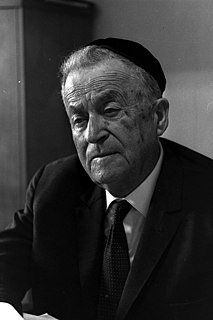A Quote by Friedrich Nietzsche
Truth will have no gods before it.- The belief in truth begins with the doubt of all truths in which one has previously believed.
Related Quotes
It is always a great honour to mention a truth which has not become widespread yet. One of these truths is that man has no soul; he has only 'body' and 'mind'. Man's unshakable belief on the soul will not change this scientific truth! No belief can be higher than the scientific truths! Man can be born, can walk and work and can think without owning a mysterious and an immaterial soul! The soullessness of the man is a great tragedy both for the man and for the religion. But Man, contrary to the religion, will come out with triumph from this tragedy.
Things that are good are good, and if one is responding to that goodness one is in contact with a truth from which one is getting something. The truth is doing us good. The truth of the sunshine, the truth of the rain, the truth of the fresh air, the truth of the wind in the trees, these are truths. And they are always accessible!
The truth wears longer than all the gods; for it is only in the truth's service, and for love of it, that people have overthrown the gods and at last God himself. "The truth" outlasts the downfall of the world of gods, for it is the immortal soul of this transitory world of gods; it is Deity itself.
Truth should be the first lesson of the child and the last aspiration of manhood; for it has been well said that the inquiry of truth, which is the love-making of it, the knowledge of truth, which is the presence of it, and the belief of truth, which is the enjoying of it, is the sovereign good of human nature.
Baroque civilization believed in two truths, which for a post-18th-century mindset are exclusive truths - we have to eliminate one to believe the other. They believed in the rational exploration of the universe, and they also believed that there was a hidden spiritual truth. Baroque thinkers were able to live the two at the same time. In any case, for me, it's necessary to live that way also.
Everyone who observes himself doubting observes a truth, and about that which he observes he is certain; therefore he is certain about a truth. Everyone therefore who doubts whether truth exists has in himself a truth on which not to doubt.... Hence one who can doubt at all ought not to doubt the existence of truth.
Jesus Christ doesn’t just give us truths; he is the truth. Jesus Christ is the prophet to end all prophets. He gives us hard-copy words from God, truths on which we can build our lives, truths we have to submit to, truths we have to obey, and truths we have to build our lives on, but he himself is the truth.
Pragmatism asks its usual question. "Grant an idea or belief to be true," it says, "what concrete difference will its being true make in anyone's actual life? How will the truth be realized? What experiences will be different from those which would obtain if the belief were false? What, in short, is the truth's cash-value in experiential terms?






































